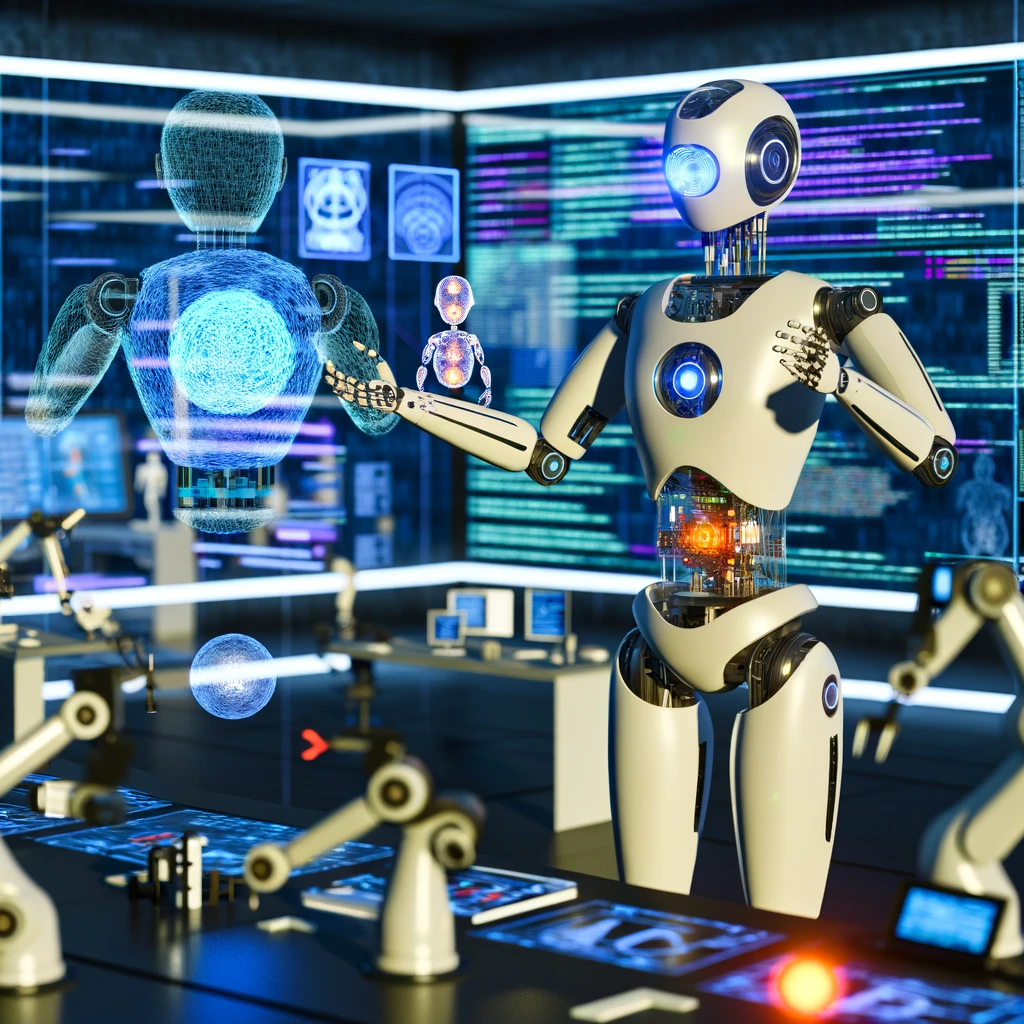Introducing Devin: The Groundbreaking AI Software Engineer
In an era where artificial intelligence (AI) continues to break new ground, a remarkable innovation has emerged, setting the stage for a significant transformation in the tech industry. Today, we are thrilled to introduce Devin, the first AI software engineer, a pioneering technology that is reshaping the boundaries of machine intelligence in software development.
Devin is not just another AI; it represents a monumental leap forward, establishing a new benchmark in the realm of software engineering. This state-of-the-art AI has demonstrated unparalleled abilities on the SWE-Bench coding benchmark, a rigorous test that evaluates an AI’s proficiency in resolving real-world GitHub issues found in open-source projects. With an impressive success rate, Devin has not only excelled in theoretical benchmarks but has also proven its mettle in practical scenarios, successfully passing engineering interviews from leading AI companies and completing actual jobs on Upwork. This marks a significant milestone, as it showcases Devin’s capacity to operate in real-world software engineering environments, bridging the gap between theoretical AI capabilities and practical application.
Unprecedented Achievement on SWE-Bench
At the core of Devin’s achievement is its performance on the SWE-Bench benchmark. This challenging benchmark tasks AI with resolving GitHub issues that arise in real-world open-source projects. Devin’s performance was nothing short of spectacular, correctly resolving 13.86% of the issues unassisted. This is a monumental improvement over the previous state-of-the-art model, which managed only 1.96% unassisted and 4.80% with assistance. Devin’s success on this benchmark not only demonstrates its advanced problem-solving capabilities but also its potential to significantly impact software development practices by automating the resolution of complex issues.
A Glimpse Into Devin’s Capabilities

Devin’s capabilities are rooted in its unique design. It functions as an autonomous agent capable of solving engineering tasks using its own suite of tools, including a shell, a code editor, and a web browser. This autonomy enables Devin to navigate the complexities of software development in a way that mimics human engineers, leveraging the vast resources available on the internet to find solutions, debug code, and even learn new programming languages and frameworks as needed.
The implications of Devin’s introduction to the software engineering landscape are profound. By automating aspects of code development and problem-solving, Devin has the potential to significantly accelerate project timelines, reduce bug rates, and free human engineers to focus on more creative and complex tasks. Furthermore, Devin’s ability to learn and adapt means it could continuously improve its performance over time, staying at the cutting edge of software development practices.
The Future of AI in Software Engineering

Devin’s introduction marks a pivotal moment in the integration of AI into software engineering. As organizations increasingly seek to enhance efficiency and innovation, AI agents like Devin could become invaluable assets, transforming the way development teams operate and how projects are managed. However, it also raises important questions about the future of work in the tech industry, the skills that future engineers will need, and how to best leverage AI to complement human creativity and expertise.
We stand on the brink of a transformative era, where AI agents in every field signal the dawn of a mega economic shift, reshaping the fabric of industry and society alike – EVO
In conclusion, Devin represents not just a technological achievement but a harbinger of the future of software engineering. As we stand on the brink of this new era, it is clear that AI will play an increasingly central role in shaping the development landscapes of tomorrow. Devin’s success is a testament to the potential of AI to not only assist but also innovate, challenging us to reimagine the possibilities of technology and its role in our lives.









Ruth Mcmahon
1 year agoWow, this post is nice, my younger sister is analyzing such things, thus
I am going to convey her.
Matthew Valentin
1 year agoHello there! This blog post could not be written any better!
Looking at this post reminds me of my previous roommate!
He constantly kept talking about this. I will send this post to him.
Pretty sure he will have a very good read.
Many thanks for sharing!